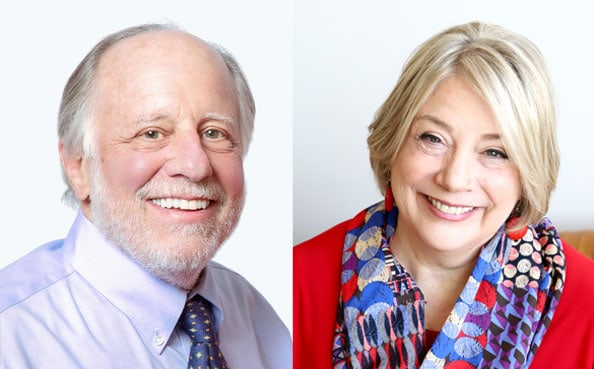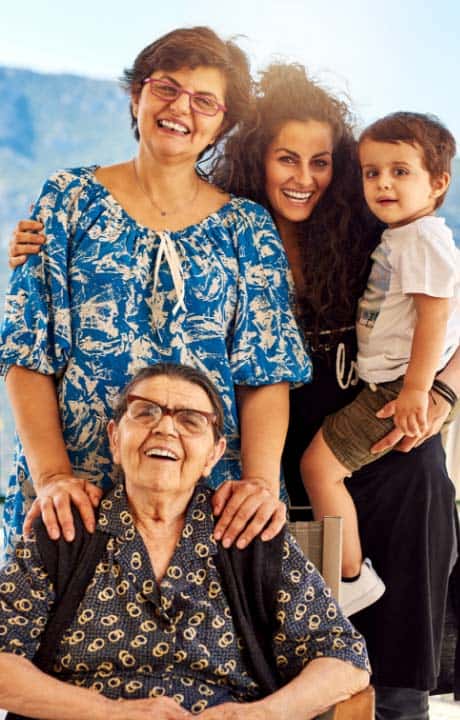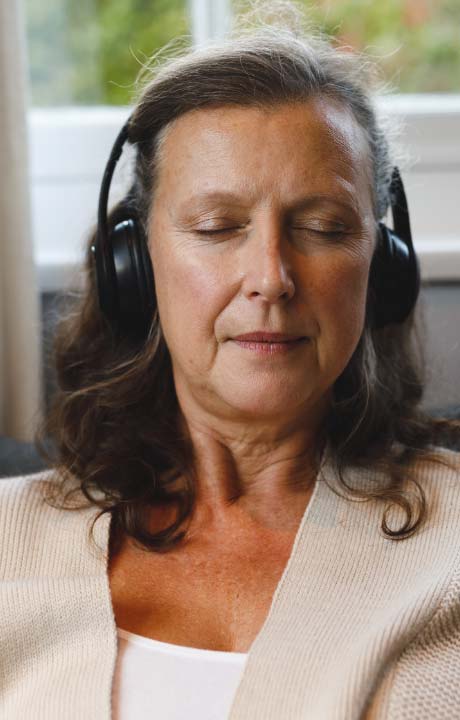From Conflict to Connection
Attachment Communication Training (ACT)
Includes 4 client demonstration-based training sessions with Dr. Terry Levy and Dr. Diane Poole Heller
Course Description
How to navigate disagreements, detachments and defensiveness within the context of adult relationships
Watch a Preview of the Training
Get a first-hand look at the approach, teaching style, and format you can expect in our on-demand learning sessions.
What’s included in the training?
Here is everything you get for just $167
Four On-Demand 2-Hour Demonstration-Based Sessions + Q&A, featuring client demo debriefs by by Dr. Terry Levy and Dr. Diane Poole Heller.
Each session includes core teaching, real client demos (with thorough explanations of techniques by Dr. Levy), practice exercises, experiential techniques and additional resources you can apply to your own therapeutic sessions.
- Session 1: Attachment Communication Training
- Session 2: “Change the Dance”
- Session 3: Repair the Relationship
- Session 4: Changing Detachment to Connection
Watch, learn and get guidance on how to resolve conflict and repair broken connections
“Put Your Skills Into Practice” Exercises that help new and experienced practitioners become more proficient in cultivating secure attachment skills in their personal and professional lives.
Private Course Portal with Lifetime Access to Course Materials including video recordings, audio, transcripts, demos, and slide handouts and additional resources for each session.
BONUS #1: 3-Part Introduction to Attachment Communication Training Video Series with Dr. Levy and Dr. Heller.
In three short video lessons, Dr. Levy and Dr. Heller discuss why many clients fall into unhealthy recurring patterns. Dr. Levy also introduces you to ACT—a powerful framework that equips you and your clients with lifelong communications skills and strategies to articulate needs clearly, listen (and respond) empathetically, become more attuned to non-verbal communication, and resolve disagreements more constructively.
BONUS #2: Course Exclusive! Intake, Assessment & Resource Packet created by Dr. Terry Levy.
Expedite and facilitate the entire client intake process, so you can assess each partner’s adult relationship patterns to more easily recognize family-of-origin and attachment system dynamics. Includes printable and editable PDF documents to download and use.
- Adult & Couples Intake Questionnaire
- Life Script to identify root causes of relational trauma
- Adult Communication Tool (ACT), a 5-step method of basic attachment concepts to use as a framework to teach and guide couples to practice healthier communication and promote listening skills.
BONUS #3: Adult Attachment Styles Mini-Questionnaire
Use this printable and editable PDF questionnaire as a starting point in therapy to indicate tendencies or patterns that might occur in the context of an adult relationship. And you can also use it as a follow-up after therapy or for personal exploration.
Why take this course?
Why are so many of our clients stuck in painful patterns & unhealthy relationship dynamics?
When our work centers on healing broken connections, conflict resolution requires more than guesswork.
Quite often, clients unable to heal their attachment injuries may unknowingly repeat unhealthy patterns in their adult relationships, often leading to more disconnect, misunderstanding and conflict.
And while disagreements in relationships—whether with a partner, parent, close friend, or even a colleague––are inevitable…

Continued conflict adds even more stress and anxiety, frequently pushing relationships to their breaking point.
What’s worse? When the problems extend beyond those in conflict––other people may find themselves caught uncomfortably in the middle of an argument.
Even the therapist, who should be serving as a guide, may become entangled in the complexity of emotions.
In the therapy room, this dynamic can lead to uncertainty or overwhelm… not knowing where to begin, which issues to address first, or which methods to use.
That’s why too many mental health professionals struggle with self-doubt, overwhelm and uncertainty when working with clients facing relationship conflicts.
Our clients deserve a therapist skilled at guiding conflict resolution for improved outcomes.
Unfortunately, we sometimes lack the practical skills we need to work with clients effectively because traditional education prioritizes theory over hands-on techniques.
Many of us have invested in courses that emphasize theoretical knowledge, but fall short in delivering applicable methods for real-world scenarios.
The truth is, that to better help our clients, we must adopt an objective and repeatable process that equips them with lifelong skills, such as needs communication, improved problem-solving and active listening.
That’s precisely why a structured approach like Attachment Communication Training (ACT) enables us to create a safe, healing environment––ideal for resolving conflicts and enhancing relationships through better understanding, trust and empathy.
We’re excited to now offer demonstration-based, on-demand training––featuring Dr. Terry Levy––that aims to bridge the gap between theory and practice.
In four client demonstration-based training sessions, you’ll learn essential therapeutic skills to integrate seamlessly into your practice—empowering you to confidently manage and resolve even the most complex conflict.
Is this the right training for me?
You could benefit from this course if…
- You’re an experienced therapist working with individuals, couples or families, and you want to integrate more effective interventions and skills-based exercises into your practice.
- You’re a newer therapist or mental health professional who wants to strengthen your own secure attachment skills to navigate conflict in adult relationships with more confidence.
- You work in a clinical setting and want to stay fully present and attuned as you establish a safe environment for yourself and clients, even when attachment style dynamics exacerbate conflict.
- You currently work with individuals and want to tailor clinical sessions using proven strategies and processes that honor each clients’ needs, so they can feel safe, seen and heard.
- You work with couples or families—and need a structured framework that uncovers the root cause of relational trauma—opening the door to healing more quickly and efficiently.
- Your caseload has become increasingly complex, and you need additional tools, interventions and strategies to help your clients with emotional wounds regain safety, trust and wholeness.
- You want to equip your clients with lifelong skills, empathy, compassion, and the language to communicate their needs and repair communication breakdowns.
Here’s what’s in the training curriculum…
Session 1
Attachment Communication Training
As a child, Ben experienced physical and emotional abuse from his father, while his mother failed to protect him. As a result, he developed an avoidant attachment style, so he now withdraws from his wife, Tina, whenever there’s conflict or she shows “too much emotion.”
Tina also experienced abuse as a child—as a teenager, she developed an anxious attachment style, showing symptoms of severe depression and an eating disorder.
In this session, you’ll learn how the Attachment Communication Training (ACT) guides couples in empathetic listening and open communication, allowing them to rebuild trust and safety—fostering greater compassion, honesty, connection and healing.
- Using the Attachment Communication Training (ACT) as a tool, guide and equip clients with the skills they need to manage conflict and communicate constructively.
- Learn how to use the “Life Script” assessment to uncover family-of-origin information to get to the root of your clients’ relationship issues more quickly.
- Discover why it’s important to establish a therapeutic “contract” in order to improve engagement (in and out of therapy), promote motivation and hold both partners accountable throughout the process.
- Integrate ACT into your clinical work and use this structured framework to teach clients lifelong skills that promote healthier dynamics in their intimate relationships.

Session 2
“Change the Dance”
Lucy was raised in a non-emotional family that valued achievements over relationships. As an adult, she developed an avoidant attachment style—often becoming critical, judgmental or dismissive with her husband, James.
As a child James experienced severe childhood abuse and emotional neglect, consequently developing an anxious attachment style, which prompted him to withdraw from Lucy as a form of self-protection.
In this demonstration, you’ll see how Lucy and James grew more attuned relationally and developed new, secure attachment skills within the safety of a nurturing therapeutic environment.
- Discover how the four early attachment adaptations, developed in response to childhood emotional injuries, continue to shape adult relationship patterns.
- Identify how secure attachment is defined within an intimate relationship, and how you can use psychodramatic reenactments—like role play—to re-establish trust and strengthen secure attachment.
- Learn how to help clients become more emotionally available to resolve attachment wounds, manage conflict more effectively (and proactively) to improve relational bonds.
- Support clients as they work to shift their internal working model, simultaneously reducing self blame and boosting self-esteem and confidence.

Session 3
Repair the Relationship
Michael was born into a home where he suffered extreme poverty, neglect and insecure attachment with an alcoholic mother. He was then placed in a Russian orphanage, where he experienced even more severe abuse and neglect.
Eventually, at age 6, he was adopted by an American family—but soon displayed symptoms of Reactive Attachment Disorder, including a lack of trust, walled-off emotions, defensiveness, pseudo-independence, anger and defiance.
In this demonstration, you’ll see how experiential interventions helped Michael address his trauma and repair emotional wounds. In turn, Michael began to feel more confident and accepting of himself, which greatly improved the connection with his father.
- Learn the different structures of the brain—and how our social and emotional experiences in childhood affect both the neurobiology and biochemistry of adult brains.
- Better understand the psychological, physical and emotional toll that trauma can have on both the body and the mind.
- Explore the elements needed to create a secure base for clients and foster a safe, healing environment.
- Learn 5 components of experiential therapy, and how these interventions can facilitate healing of emotional wounds to shift unhealthy core beliefs.

Session 4
Changing Detachment to Connection
As a child, Sara was physically abused by her father, who was volatile and highly critical. At the same time, Sara’s mother was weak, passive and frightened—failing to protect Sara from the abuse. As an adult, Sara avoided closeness in her marriage to Kelly, often becoming angry and critical.
Kelly on the other hand, had a father who was emotionally detached and unavailable—while her mother was judgmental and critical. She shamed Kelly for her sexuality and gender identity. Inevitably, Kelly adapted and learned to cope with any signs of discord by avoiding the disagreement entirely.
In this demo, you’ll watch as Sara and Kelly learn how to turn to each other—instead of withdrawing—to create a relationship based on warmth and genuine connection.
- Learn how to analyze underlying and complex patterns that stem from highly traumatic childhood experiences.
- Discover why (and how) many of us continue to repeat patterns from the past in our present, until we recognize and repair the original relational wound.
- Discover how we can utilize our brain’s innate plasticity to “rewire” the traumatized brain to develop new patterns, habits and a shift back toward secure attachment.
- Learn which strategies, skills and interventions can be integrated with existing modalities to help clients resolve conflicts, create a sense of safety and trust—so they become a secure base for each other.

Meet Your Instructors

“Healthy communication promotes empathy, understanding, need fulfillment, and fosters constructive problem-solving and conflict management.”
Terry Levy PhD, D.A.P.A., B.C.F.E., is the Director of the Evergreen Psychotherapy Center and the Attachment Treatment and Training Institute.
We welcome Dr. Levy back to Trauma Solutions, where he previously taught Attachment Communication Training, Attachment and Trauma Therapy for Adult Relationships, and Healing Traumatized Families in our Therapy Mastermind Circle program.
Dr. Levy has been a psychotherapist, trainer, supervisor and consultant for more than 50 years. He is a licensed clinical psychologist in Colorado and Florida, a board-certified forensic examiner and a diplomat and master therapist of the American Psychotherapy Association.
Evergreen Psychotherapy Center in Evergreen, CO is an internationally recognized home to more than 30 years of experience and innovation in the treatment of attachment and trauma problems.
Dr. Levy and his staff have worked with thousands of children, adults, couples and families—collaborating with thousands of mental health service providers, educators and allied professionals worldwide to advance research and treatment within the field.
His approach is one of health rather than pathology. Dr. Levy believes that deep down, all people want to heal and are capable of achieving wholeness. His aim is to take a path of gentleness to develop positive connections and promote cooperation.
Dr. Levy has taught seminars for mental health, child welfare and school systems throughout North America, Europe and Asia. He is co-author of the best-selling book, Attachment, Trauma and Healing, editor of the Handbook of Attachment Interventions, and co-author of Healing Parents: Helping Wounded Children Learn to Trust and Love.

“If we wanted to change the world and our relationships, the fastest way to do it would be to heal attachment.”
Dr. Diane Poole Heller is an internationally recognized speaker, author, and teaching expert in the field of adult attachment theory and trauma resolution.
Her signature approach—DARe (Dynamic Attachment Re-patterning experience)—provides therapists and individuals with relevant skills and practical exercises that facilitate healing from attachment and trauma wounds.
Her work with adult attachment has forged a path for adults with childhood attachment injuries to develop Secure Attachment Skills (SAS) that lead to more connected and fulfilling adult relationships.
She has authored several books, including the widely acclaimed The Power of Attachment: How to Create Deep and Lasting Intimate Relationships. Her expertise in trauma healing has supported survivors, helpers, and families affected by events such as 9/11, Columbine, and other school shootings.
Through various training programs, books, lectures and her own work as a clinical therapist, Dr. Heller has helped a countless number of people in their healing journey towards experiencing greater intimacy, wholeness and more fulfilling relationships.
She believes that when we heal ourselves first, we heal our families, our communities and the world as a whole.
Frequently Asked Questions
Who is this course for?
This course is ideal for both novice and experienced therapists, life coaches, bodywork practitioners and other mental health or behavioral professionals who work with both individuals and couples in a clinical setting—and who need a proven framework to equip clients with healthy communication skills, so they can navigate conflict and foster deeper connections in all their adult relationships.
What will I learn in this course?
In four client demonstration-based training sessions, you’ll learn essential therapeutic skills to integrate seamlessly into your practice—empowering you to confidently manage and resolve even the most complex conflict.
How do I access the course materials?
Course materials (including audio and transcripts), session recordings, and additional resources will be available through our online learning platform—Kajabi—which you can access at any time once you have purchased the training.
Are CE credits available for this course?
Continuing Education (CE) credits are not available for this training at this time.
I’m having trouble completing the purchase. How can I get support?
If you have additional questions or need technical support, please contact our friendly Customer Support Team for help.
Is there a refund policy?
We’re confident this program will be a valuable investment in your education, personal growth and clinical practice.
Because this is a re-issue of previous training (at a special promotional price) and course materials are downloadable, all sales are final.
If you have further questions, do not hesitate to reach out to our Customer Support Team for help.
What Our Students Say About This Training
“I’ve never seen such a complete and comprehensive approach to therapy. The ACT and Life Script are certainly very useful tools for my practice. I will definitely continue to review the content of this program. It has been eye opening personally as well!”
––Anna C.

“This is my third workshop with Trauma Solutions, and I am incredibly grateful for the valuable techniques and exceptional teachers.
I will be implementing ACT with two couples over the next few months. I am truly excited to witness the positive outcomes. Thank you Diane and Terry for providing such a fantastic experience.”
—Carolina Herrera Tamariz
“Dr. Levy is so organized, concise, and clear. The demos were amazing, with so much experiential and practical knowledge that could take years for other models to achieve.
I really appreciate how Dr. Levy and ACT aren’t just theoretical, but super practical and hands-on. Come back please 🙂
––Agnis J Pena-Toro

“Thank you Terry for the powerful demos. I’m moved to tears watching these. Thanks for your in-depth knowledge and expertise in attachment—both the unresolved and the secure.”
––Kimberly Chan
“This class has been so enjoyable and packed with helpful information. I’m really grateful to be able to learn in these excellent short courses that easily accommodate a busy schedule.” Thank you both!”
—Robyn Lynn

“How exciting to be present and get so many resources and inspiration from this great course.
Thank you both (and to your team).”
—Hana Scibranyova
“This training was absolutely AMAZING!!!! Thank you Terry and Diane. I am so glad the trainings were recorded. I will be able to go back and watch it so that I am able to do this work (ACT).”
—Dr. Natasha LaMarr

Dr. Terry Levy
Dr. Diane Poole Heller
Get immediate access…
- 4 Recorded, On-Demand 2-hour Training Sessions
- “Put Your Skills Into Practice” Exercises
- Private Course Portal with Lifetime Access to Video Recordings, Audio, Transcripts, and Resources
- BONUS #1: 3-Part Introduction to Attachment Communication Training Video Series
- BONUS #2: Course Exclusive! Intake, Assessment & Resource Packet
- BONUS #3: Adult Attachment Styles Mini-Questionnaire

Own It Now For Just
$167
More Savings On Our Most Popular Trainings!

Peter A. Levine, PhD,
Dr. Diane Poole Heller
Learn to work somatically with clients who have complex trauma. Regulate the nervous system and support deep healing and resilience.
$297
Peter A. Levine, PhD,
Dr. Diane Poole Heller
Efu Nyaki, SEP
Learn to recognize and heal inherited trauma using somatic practices, DARe techniques, and family constellations.
$247
NEW! Dr. Terry Levy
Learn to nurture secure, loving relationships with children facing emotional and behavioral challenges. Develop skills to guide their healing and support their growth.
$167
Dr. Terry Levy,
Dr. Diane Poole Heller
Help clients manage conflicts, disconnection, and defensiveness in their adult relationships.
$167
NEW! Dr. Diane Poole Heller
Explore how early trauma and attachment wounds create shame. Gain practical tools to quiet your inner critic, restore confidence, and find relief through self-compassion and daily healing practices.
$67
Peter A. Levine, PhD,
Dr. Diane Poole Heller
Learn how to recognize the physical signs of trauma and use somatic therapy techniques for recovery, relief, and healing.
$267












